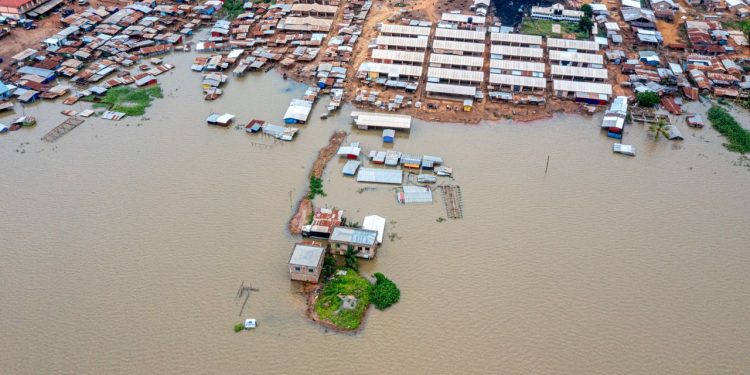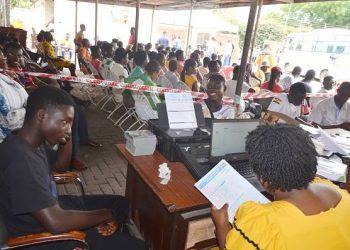Residents living in flood-affected areas in the lower Volta Basin are at risk of experiencing a possible rise in female genital Schistosomiasis (bilharzia), as aquatic weeds that carry freshwater snails, which are carriers of the parasites, have drawn closer to communities living along the Volta River.
The Deputy Health Director in charge of Public Health in the Volta Region, Dr. Senanu Djokoto, explained in a Citi News interview that although there had not been an increase in cases of bilharzia in the region over the years, the prevalence rate in the lower Volta Basin may be increasing following the spillage of the Akosombo and Kpong Dams and its adverse effect on people, as they are likely to come into contact with the parasites.
He stated that the Ghana Health Service is, however, working with the Volta River Authority to ensure appropriate interventions are put in place to reduce such cases.
He cautioned residents in these areas to desist from passing water into the river.
“Our data here at the Volta Regional Health Directorate does not suggest that we have had an increase in the number of Schistosomiasis cases over the period. However, in 2015, a survey was conducted, and we noticed that the prevalence rates in Schistosomiasis had decreased in most of the communities along the Volta Basin. It is usually rated between mild and moderate.”
“However, because of the flooding along the Volta Basin this year, the aquatic weeds that carry the freshwater snails that harbour the baby parasites, which penetrate individuals who come into contact with the infested water, have gone closer to the communities. Therefore, the possibility of interacting with the larval form of the parasite is high, and once this is high, there is a clear indication that the cases of Schistosomiasis will increase.”
About schistosomiasis
Schistosomiasis, also known as bilharzia, is a disease caused by parasitic worms. In terms of impact, this disease is second only to malaria as the most devastating parasitic disease. Schistosomiasis is considered one of the neglected tropical diseases (NTDs). The parasites that cause schistosomiasis live in certain types of freshwater snails. The infectious form of the parasite, known as cercariae, emerge from the snail into the water. You can become infected when your skin comes in contact with contaminated freshwater. Most human infections are caused by Schistosoma mansoni, S. haematobium, or S. japonicum.
Explore the world of impactful news with CitiNewsroom on WhatsApp!
Click on the link to join the Citi Newsroom channel for curated, meaningful stories tailored just for YOU: https://whatsapp.com/channel/0029VaCYzPRAYlUPudDDe53x
No spam, just the stories that truly matter! #StayInformed #CitiNewsroom #CNRDigital











